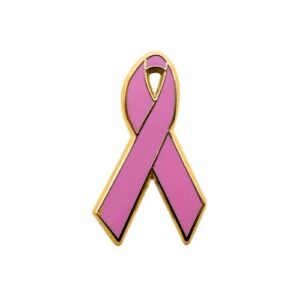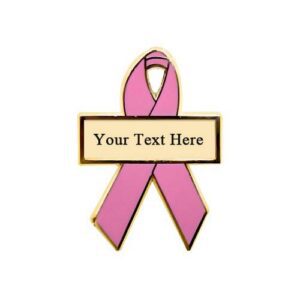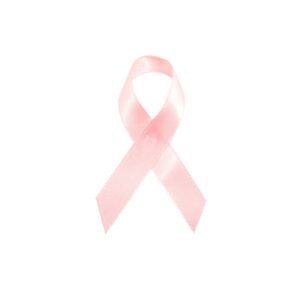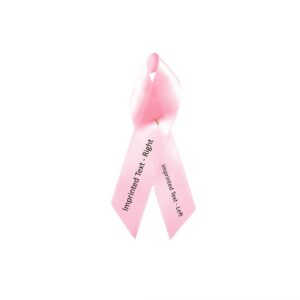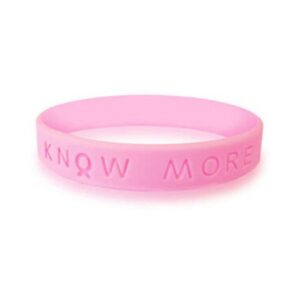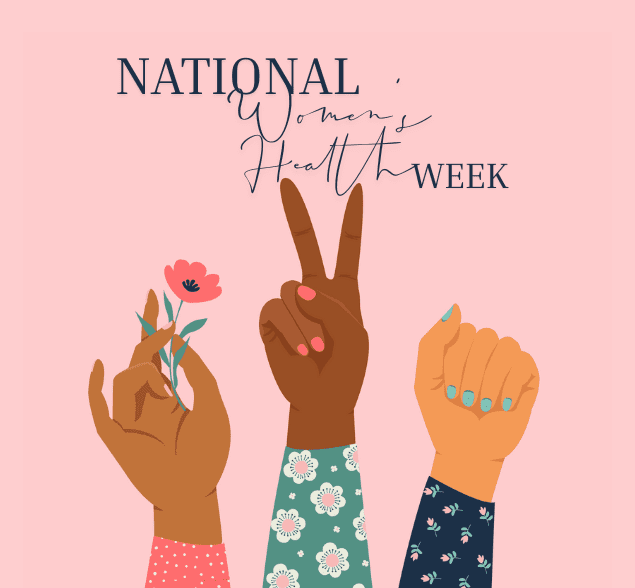
National Women’s Health Week
National Women’s Health Week starts each year on Mother’s Day. This health observance encourages women and girls to make their health a priority. Taking care of yourself includes caring for your physical, mental, social, and emotional health. There’s a lot that you can do. For example, practicing healthy habits to make and keep all health care appointments. Practice healthy behaviors to get the care you need. Wear a pink pin or ribbon to signify women’s issues. Personalized Cause offers pink enamel awareness ribbon pins, fabric ribbons, or pink silicone awareness wristbands.
Regular check-ups are important.
Talk to a healthcare provider:
- To find out about screenings and exams you may need and when they should occur. You can also explore the covered preventive services for women and other services available for women at no cost.
- If you are pregnant or within the year after delivery, seek immediate care from a healthcare provider if you are experiencing urgent maternal warning signs.
- If anything doesn’t feel right or is concerning. Make an appointment or contact your doctor or nurse by phone or e-mail. Write down any questions or issues you may have and take them to your appointment.
A healthy balanced diet is an essential part of a healthy lifestyle.
Nutrition is an essential part of a healthy lifestyle. Learn the basics of healthier eating habits.
- Include a healthy eating plan that consists of fruits, vegetables, whole grains, fat free or low-fat milk and other dairy products, and lean meats. You can also add to or substitute dairy products with lactose-free versions and fortified soy beverages and yogurts. Your eating plan should be low in salt, saturated and trans fats, and added sugars. Learn more healthy eating tips.
- If you become pregnant, take 400 micrograms of folic acid every day. Taking folic acid before and during pregnancy reduces the risk that the baby will have a major birth defect of the brain or spine.
- Avoid drinking too much alcohol. Excessive alcohol use has immediate effects that increase the risk of many harmful health conditions and can lead to chronic diseases. If you choose to drink alcohol, do so in moderation, which is up to 1 drink a day for women. Check your drinking habits and make a plan to drink less alcohol.
Move more and sit less. Every little bit of physical activity helps. Start small and build up to 2 hours and 30 minutes a week. You can break it into smaller amounts of time, such as 20 to 30 minutes a day.
Get out and about and enjoy the spring and summer weather. Physical activity is one of the most important things you can do for your health. Physical activity has many benefits, including lowering your risk for heart disease. Heart disease is the leading cause of death for women.
- Adults should do at least 2 hours and 30 minutes each week of aerobic physical activity that requires moderate effort. You don’t have to do it all at once.
- Adults should do strengthening activities at least 2 days a week that include all major muscle groups.
- More than one out of four older people falls each year and women fall more often than men. Strength and balance training can help reduce falls.
What you can do:
- Take five. Take a deep breath and relax. Even five minutes to take care of yourself can help.
- Be active. Take a walk, stretch, or exercise.
- Connect with others. Reach out to friends and family.
- Seek support from friends, family, and trusted organizations. Talk about your feelings with others. Reach out to clergy or others in your faith community.
- Get help from a professional. Talk to a health care provider about how you are feeling.
- Make an appointment with a counselor.
- Contact the 988 Suicide & Crisis Lifeline.If you or someone you know is struggling or in crisis, help is available. Call or text 988 or chat 988.
- Take time to unwind and enjoy your favorite activities.
Keep your mind and body healthy. Research shows that positive mental health is associated with better overall health and well-being. There are some important steps you can take to get the support you need to cope with stress and improve your well-being.
- If you menstruate, maintain healthy habits during your period, like changing your menstrual products regularly and tracking your cycle. Learn about your menstrual cycle and talk to a healthcare provider about any concerns you have. Reach out to local health or social service organizations if you need help affording menstrual products.
- Menopause is a normal change in a woman’s life when periods stop. A woman has reached menopause when she has not had a period for 12 months in a row. If you are experiencing menopause, learn about ways to help relieve your menopause symptoms.
Take Care of Your Body During National Women’s Health Week
Staying physically healthy can improve your emotional well-being.
Here are some suggestions:
- Take steps to prevent yourself from getting sick. Keep up with regular health appointments and make sure to get vaccinated.
- Get enough sleep for your overall health. It impacts how you feel and perform during the day. Adults need at least 7 hours of sleep each night. Good habits, such as following a regular sleep schedule, including weekends, make it easier for you to get the sleep you need.
- Avoid using illegal drugs or prescription drugs in ways other than prescribed. Don’t take someone else’s prescription. Substance use treatment is available and recovery starts with asking for help.
- Avoid smoking, vaping, and the use of other tobacco products. People can and do quit smoking for good.
- Make time to unwind. Try to do some activities you enjoy.
- Connect with others.Having quality relationships and a sense of belonging is important for both our physical and mental health. Talk with people you trust about your concerns and how you are feeling.
- Find a local support group. Support groups provide a safe place for people to find comfort. You are not alone.
- Recognize when you need more help. If stress gets in the way of your daily activities for more than two weeks, or you are thinking about suicide, talk to someone who can help. You can talk to a psychologist, social worker, or professional counselor.
- If you or someone you know is struggling or in crisis, help is available. Call or text 988 or chat 988.
- If you are experiencing violence,reach out for support. Visit the National Domestic Violence Hotline or call 1-800-799-7233 and TTY 1-800-787-3224.
